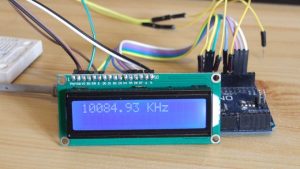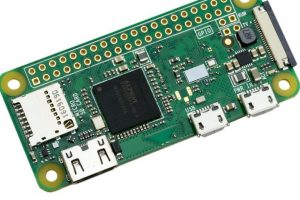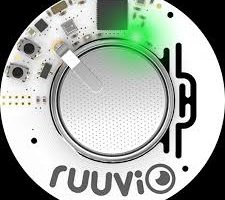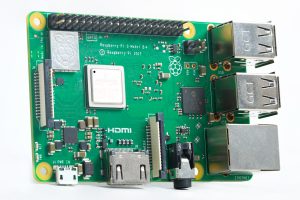Thierry Guennou, writes:
“The concept of this board is to build an open, very versatile frequency counter, so it can be used to measure a wide variety of signals.”
Built around an AVR microcontroller Atmega328p-AU, the Freq_LF_HF v1.0 board is compatible with the Arduino community support and the many software libraries.
He is looking for minimum pledges of €9 on kickstarter.
As part of its design the board’s firmware makes use of the MCU’s 16-bit timer, interrupts and comparator for an external precision voltage reference.
Guennou, writes:
“Proof of concept was done by breadboarding and using a standalone UNO board. Followed three prototypes to choose between a couple of topologies and eventually fine-tune the board.
“It is now time to produce a first batch of at least 100 boards, by a professional assembly company, and using the latest technologies available.”
The board has been tested with an Arduino Uno. It can measure frequencies from less than 5Hz to above 70MHz. Low frequency signals (LF), high frequency signals (HF) and very high frequency signals (VHF) are treated separately to get full precision across the bandwidth.
Signal amplitude ranges from 0.5V to 10V.
 Accuracy is 0.005%, precision is 0.005% and resolution: frequency less than 10kHz: 4 digits, frequency greater than or equal to 10kHz: 5 digits
Accuracy is 0.005%, precision is 0.005% and resolution: frequency less than 10kHz: 4 digits, frequency greater than or equal to 10kHz: 5 digits
It is powered using a 9V ac/dc converter or directly to PCB pins or by a 9V battery with the adapter included in the package.
Signal can be fed to the board using a BNC connector or PCB headers.
Input impedance is 1 Mohm.
 Electronics Weekly Electronics Design & Components Tech News
Electronics Weekly Electronics Design & Components Tech News





The board has been slightly revised to offer more precision at a lower cost. A new KS campaign is now live @ https://www.kickstarter.com/projects/2130502307/arduino-compatible-precision-frequency-counter-5-or-120-mhz